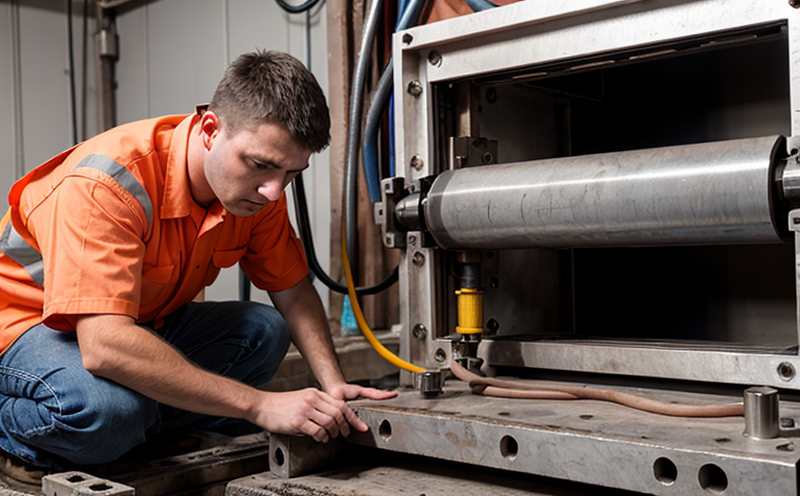ISO 287 Mechanical Safety Testing of Paper Based Lamp Insulation
The ISO 287 mechanical safety test is a critical procedure for ensuring the integrity and durability of paper-based lamp insulation. This test evaluates how well the insulation can withstand mechanical stress, which is essential to prevent electrical hazards and ensure long-term performance in lighting fixtures.
During the ISO 287 test, samples are subjected to various mechanical forces, including bending, twisting, and compression, to simulate real-world conditions they may encounter during installation or operation. The objective is to assess whether the insulation can maintain its structural integrity under these stresses without compromising electrical safety.
The testing process involves precise sample preparation, which typically includes cutting the paper-based insulation into standard dimensions as specified in ISO 287. Specimens are then mounted onto fixtures that apply controlled mechanical forces. The test setup allows for consistent application of stress to mimic actual usage scenarios, such as vibrations or impacts from nearby objects.
Once the specimens are prepared and tested, data is collected on any deformation or failure points. This information helps determine whether the insulation meets the specified performance criteria outlined in ISO 287. Compliance with these standards ensures that the product is safe for use in lighting applications, reducing the risk of electrical shorts or fires.
The mechanical testing process also includes visual inspections to identify any visible damage or defects that could indicate potential weaknesses in the insulation. These inspections are crucial for identifying issues early on before they lead to more severe problems down the line.
Understanding the importance of this test is vital for quality managers, compliance officers, and R&D engineers responsible for ensuring product safety and reliability. By adhering to ISO 287 standards, manufacturers can demonstrate their commitment to producing high-quality lighting products that meet global regulatory requirements.
- Reduces the risk of electrical hazards due to compromised insulation
- Promotes long-term performance and durability of lighting fixtures
- Achieves compliance with international safety regulations
Eurolab Advantages
At Eurolab, we offer unparalleled expertise in mechanical safety testing of paper-based lamp insulation. Our state-of-the-art facilities and experienced professionals ensure that every test is conducted to the highest standards, providing accurate and reliable results.
- Access to cutting-edge equipment tailored specifically for ISO 287 testing
- Dedicated team of engineers specializing in electrical safety and mechanical integrity assessment
- Comprehensive reporting services with detailed insights into test outcomes
We pride ourselves on delivering consistent results that exceed industry expectations. Whether you're looking to comply with local regulations or meet global standards, Eurolab is your trusted partner for quality assurance.
Why Choose This Test
- To ensure compliance with international safety standards such as ISO 287
- To mitigate risks associated with compromised insulation leading to electrical hazards
- To enhance the overall performance and longevity of lighting fixtures
- To provide robust data for product development and improvement processes
Competitive Advantage and Market Impact
By incorporating ISO 287 mechanical safety testing into your quality control process, you can gain significant competitive advantages in the market. Not only does this demonstrate your commitment to product safety but it also helps build customer trust.
The results of these tests serve as strong evidence that your products meet or exceed industry benchmarks, making them more attractive to potential customers. Additionally, successful completion of such rigorous testing can open doors to new markets and opportunities for expansion.
In today’s competitive landscape, where consumer safety is a top priority, having reliable third-party verification of your product's mechanical integrity can set you apart from competitors who may not prioritize similar standards.





